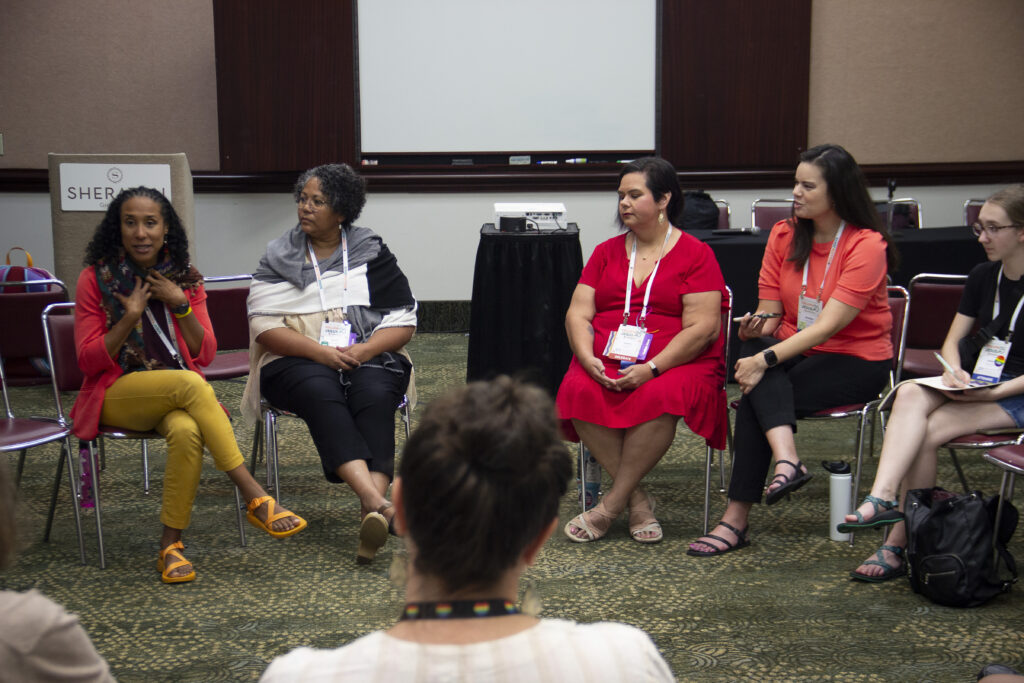By Sharon Hernandez
 Living at the intersection of multiple identities and faith can at times be disorienting, isolating or even exhausting. But Madalyn Metzger, Chief Marketing Officer at Everence®, says over time she’s come to believe that our complex identities aren’t barriers to faith – they’re sacred spaces where we can encounter God more honestly and be bridge-builders for others.
Living at the intersection of multiple identities and faith can at times be disorienting, isolating or even exhausting. But Madalyn Metzger, Chief Marketing Officer at Everence®, says over time she’s come to believe that our complex identities aren’t barriers to faith – they’re sacred spaces where we can encounter God more honestly and be bridge-builders for others.
Metzger led the workshop “Seen and Known: Faith, identity and belonging between worlds,” Thursday, July 10, and facilitated the panel “Seen, known and called: Faith and Identity” Friday, July 11, both opportunities to explore the challenges of navigating different worlds.
The Thursday workshop, geared toward younger participants, focused on Metzger’s own experience as a multiracial, multicultural person navigating life between communities. She drew on the story of Hagar in Genesis 16, and the powerful encounter she has with God while fleeing from persecution.
“We talked about what it means to be truly seen and known by God when it feels like the world around us might be struggling to fully recognize or understand who we are, regardless of our backgrounds,” she said about the workshop.
The panel on Friday featured three panelists – Joanne Gallardo, Marisa Smucker, and Sarah Nahar – who each brought their own lived experiences as people navigating multiple racial and cultural spaces. Together with Metzger, they reflected on the challenges of belonging, the internal dynamics of racial identity, and how we can reclaim the truth that God calls us not in spite of our complexity, but through it.
Metzger said both presentations were something she wish she’d had access to earlier in life.
“These aren’t just topics I care about – they’re part of my story,” she said. “Growing up as a multiracial person within an Anabaptist tradition, I often experienced what it meant to live “in-between – and how disorienting, isolating, or even exhausting that can be.”
MC USA invited her to lead the sessions after she offered a similar workshop at the 2025 Hope for the Future gathering in January. In addition to the important message of embracing your story, Metzger said these sessions are an invitation for congregations and faith-based institutions to move past just checking the box of representation and work to create communities where people’s whole identities are not only seen, but welcomed, understood, and valued.
Metzger said she hopes the workshops speak to people who’ve ever felt like they live in-between – between cultures, between languages, between expectations, including anyone who has ever felt like they didn’t fully belong in the communities they’re part of.
“You don’t need to shrink or flatten your identity in order to belong, she said. “God sees you fully, knows you deeply, and calls you as you are. Your story – especially the parts that feel complicated – is not a burden. It’s a gift.”

